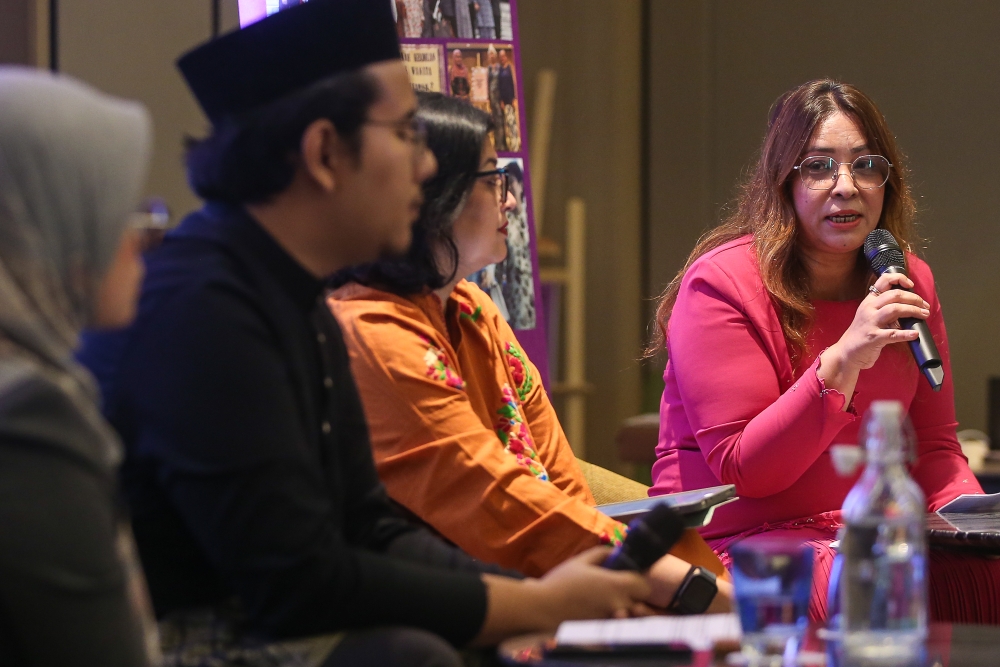- Muslim mothers face delays in Shariah courts when lawyers quit representing them despite being paid.
- Complaints against Shariah lawyers are handled by each state’s Shariah judiciary, unlike civil lawyers who face a central disciplinary board.
- Once a complaint is lodged, Shariah lawyers may face action such as warnings, suspension, or being barred from practising in that state.
KUALA LUMPUR, Sept 17 — What can you do if your Shariah lawyer suddenly stops working on a case you’ve paid for, leaving you stranded in the Shariah courts?
This is an actual problem faced by many, particularly women, but there is a solution.
Women’s rights group SIS Forum (Malaysia) said its free legal clinic, Telenisa, has encountered clients whose family law cases at the Shariah court were delayed due to unethical lawyers.
This compounded findings in its Telenisa 2024 report that fewer than one in 20 of the women who contacted the group for legal advice had secured the services of a lawyer.
“So, it’s like a double whammy for women. First, you can’t afford (a lawyer). When you can afford one, you face unethical lawyers, they take your money, they don’t continue your case, they withdraw themselves,” said SIS Forum communications manager Ameena Siddiqi at a recent forum.
The report found that delays in Shariah court cases involving child maintenance, child custody, and wife maintenance were primarily caused by unethical lawyers, while one case involved an absent judge.
How to complain about a Shariah lawyer’s misconduct
Unlike civil lawyers in Peninsular Malaysia who have the centralised Advocates & Solicitors Disciplinary Board of Malaysia, complaints against Shariah lawyers must be made within the respective state where the lawyer practises.
“Individuals can lodge complaints at the respective state’s Shariah Judiciary Department by filling up a form for complaints on Shariah lawyers’ wrongdoing,” Shariah and civil lawyer Nor Liana Ali said when explaining the process to Malay Mail.
The complainant must provide all the facts along with supporting documents and evidence, she said.
While the rules are similar across states, the filing mechanism may differ, she said. For example, Pahang allows online complaints through its Public Complaints Management System (SISPAA) system, while Selangor requires a physical form to be downloaded and submitted to the state’s Shariah lawyers committee.

Shariah lawyer Nor Liana Ali said lawyers cannot just suddenly stopped appearing in court for clients who do not pay, and that lawyers have to inform the court and give reasons why they want to discharge themselves from the client’s case. — Picture by Yusof Mat Isa
Can Shariah lawyers withdraw from cases?
Yes, but they must follow a proper court process by applying to discharge themselves, similar to civil lawyers.
A lawyer cannot simply abandon a case if a client is late with payments. They must typically send multiple written reminders first, Nor Liana said.
Only if a client fails to cooperate, is uncontactable, or fails to appear in court can a lawyer file an application with the court to be formally discharged.
“It’s not as simple as that, where if they don’t pay, we can straight-away discharge ourselves,” Nor Liana said.
Nor Liana said clients can lodge complaints when a Shariah lawyer suddenly drops a case without reasonable cause shortly after receiving payment, or if they fail to attend court or file necessary documents.
Using Selangor as an example, Nor Liana said valid reasons include when a lawyer suddenly drops a case without reasonable cause shortly after receiving payment, or if they fail to attend court or file necessary documents.
Proposals to strengthen the system
The Telenisa 2024 report included several proposals to speed up cases and improve professional ethics, including:
- Setting a maximum time limit for the resolution of Shariah cases, especially those older than five years.
- Introducing a digital case management system (Shariah e-Litigation).
- Creating an independent and transparent body to handle complaints against Shariah lawyers and judges.
- Forming a Professional Conduct Tribunal for the Shariah legal sector.
* For free advice on Islamic family law, contact SIS Forum’s Telenisa helpline at 012-812 3424, available via WhatsApp text or voice call.
Recommended reading:






